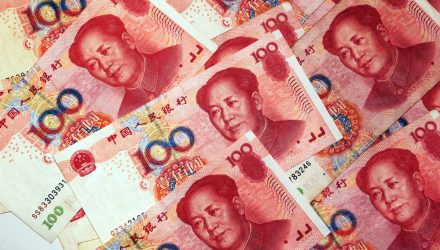Chinese companies were found to be in full compliance with U.S. audits in a historic moment earlier this month, resetting the clock on delisting risk for the nearly 200 companies from China currently listed on U.S. exchanges. The announcement wasn’t met with an influx of investors into ADRs but is likely to lead to a steady flow of advisors back into the space in the coming months.
The uncertainty surrounding Chinese companies listed on U.S. exchanges kicked into high gear earlier this year when the SEC announced that five companies failed to comply with listing requirements and would face delisting in 2024. Since then, nearly 200 companies have been added to that list because Chinese companies did not allow U.S. auditors under the purview of the Public Company Accounting Oversight Board (PCAOB) access to their books and operations.
It came down to a clash of regulations, and after nearly a year of negotiations, both China and the U.S. were able to come to an agreement that allowed U.S. auditors full, unobstructed access to audit the Chinese companies that list in the U.S. in a historic move.
Willingly investing into ADRs in individual companies that faced very real delisting risk in the U.S. has been an extreme risk for advisors this year, and one that many chose to avoid by removing their exposure. Fund flows out of China-centric funds and individual stocks have been substantial this year until the last month, and it’s left much of the space at deeply discounted prices despite underlying fundamentals that largely haven’t changed for most of the companies.
China’s Changing Regulatory Landscape
KraneShares anticipates that much of that will change in the coming months as advisors get the green light with the reset of the clock for delisting risk. There is no longer a specific timeline on delisting for the 200 Chinese companies trading in the U.S., but it will require annual compliance with audits to keep the timer off.
“We will likely see a grind higher as investors skepticism and underinvestment toward China recedes,” wrote Brendan Ahern, CIO of KraneShares, on the China Last Night blog. “The rerating will happen incrementally as many investors are aware of the Post Party Congress Policy Pivot.”
That pivot entails changing regulations regarding China’s zero-COVID policy, underlying regulatory and monetary support for the real estate sector to enable recovery, and headway made in the U.S. China political relationship. The first two have seen remarkable change just in the last two months; rollbacks on many of the zero-COVID practices within China and a return to travel have happened in the last month, as well as major monetary support and policies that opened up borrowing for real estate developers at risk of defaulting and a push to complete the projects in default, many of which are apartment homes.
On the political side, U.S. and Chinese representatives continue to meet, and there has been face-to-face dialogue between President Xi and President Biden and an ongoing commitment to bridge many of the gaps that have opened in recent years. Trade policy remains a risk, particularly as the U.S. practices policies focused on deglobalization and a return to domestic production and supply.
“Ultimately, the US and Chinese economies are highly intertwined while US multi-nationals are doing great business in China,” Ahern explained.
Capturing the Rebound Potential in China Equities
The return to investing in U.S.-listed Chinese companies in the coming months could lead to positive price momentum and recovery in stocks that are currently trading at deep valuations. There are a number of ways to play investing into China in 2023 with KraneShares. For example, the KraneShares Bosera MSCI China A Share ETF (KBA) invests in Chinese A shares across multiple sectors — specifically those from the MSCI China A 50 Connect Index. The index utilizes a balanced sector weight methodology to give exposure to the breadth of the Chinese economy.
For advisors and investors that see potential in a rebound within China’s technology sector, which is currently trading at a steep discount, the KraneShares CSI China Internet ETF (KWEB), which tracks China’s internet sector, offers opportunity. KWEB invests in companies that develop and market internet software and services, provide retail or commercial services via the internet, develop and market mobile software, and manufacture entertainment and educational software for home use.
KraneShares also offers the KraneShares S&P Pan Asia Dividend Aristrocrats ETF (KDIV), which tracks companies that have grown their dividends sustainably over an extended time horizon in the Pan Asia region. The fund offers exposure to China, Australia, Japan, and more and will provide advisors with the opportunity to diversify their portfolios globally while still taking a more defensive stance against market volatility through dividend aristocrat companies.
For more news, information, and analysis, visit the China Insights Channel.

